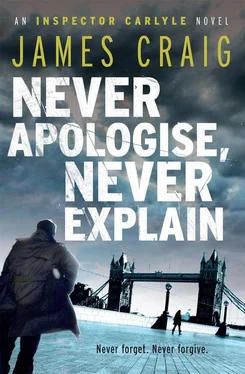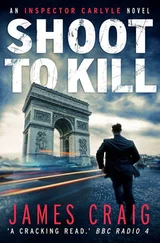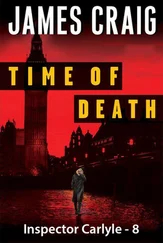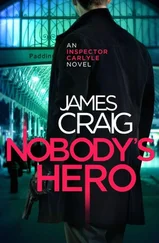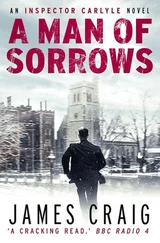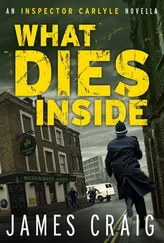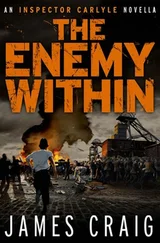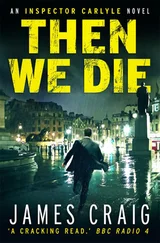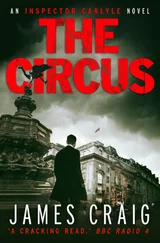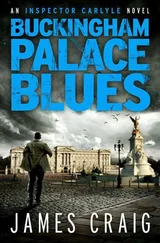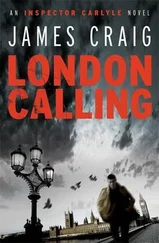James Craig - Never Apologise, Never Explain
Здесь есть возможность читать онлайн «James Craig - Never Apologise, Never Explain» весь текст электронной книги совершенно бесплатно (целиком полную версию без сокращений). В некоторых случаях можно слушать аудио, скачать через торрент в формате fb2 и присутствует краткое содержание. Жанр: Полицейский детектив, на английском языке. Описание произведения, (предисловие) а так же отзывы посетителей доступны на портале библиотеки ЛибКат.
- Название:Never Apologise, Never Explain
- Автор:
- Жанр:
- Год:неизвестен
- ISBN:нет данных
- Рейтинг книги:4 / 5. Голосов: 1
-
Избранное:Добавить в избранное
- Отзывы:
-
Ваша оценка:
- 80
- 1
- 2
- 3
- 4
- 5
Never Apologise, Never Explain: краткое содержание, описание и аннотация
Предлагаем к чтению аннотацию, описание, краткое содержание или предисловие (зависит от того, что написал сам автор книги «Never Apologise, Never Explain»). Если вы не нашли необходимую информацию о книге — напишите в комментариях, мы постараемся отыскать её.
Never Apologise, Never Explain — читать онлайн бесплатно полную книгу (весь текст) целиком
Ниже представлен текст книги, разбитый по страницам. Система сохранения места последней прочитанной страницы, позволяет с удобством читать онлайн бесплатно книгу «Never Apologise, Never Explain», без необходимости каждый раз заново искать на чём Вы остановились. Поставьте закладку, и сможете в любой момент перейти на страницу, на которой закончили чтение.
Интервал:
Закладка:
‘Or I could get arrested?’
‘Yeah.’
The old man’s face lit up. ‘I could die in custody. Fall down some stairs.’
Carlyle laughed as he started down the road. ‘You never know, Harry. You never know.’
FIVE
‘Where the bloody hell have you been?’
Leaning back in his chair, Carlyle looked blankly at his sergeant.
‘I called you on the mobile,’ Joe complained, the exasperation clear in his voice.
Carlyle fished his phone out of the breast-pocket of his jacket. The screen said he had missed four calls. Four bloody calls. That was about par for the course with Carlyle and his mobile phones. He looked up and tried to appear apologetic. ‘Sorry.’
Having just returned from a week’s holiday in Portugal, Sergeant Joseph Szyszkowski was tanned and, despite his current irritation with his boss, extremely relaxed. He looks like he’s lost a bit of weight, Carlyle thought idly. And caught up on his sleep.
Lucky bugger.
Carlyle was glad to have his sergeant back. Joe was not your average copper. He was second-generation Polish and somewhat unworldly. But they had been working together for more than five years, and he was one of the few people — the very few — on the Force with whom Carlyle enjoyed working and, more importantly, trusted.
‘Well, now that you’re here, we have to go.’ Joe casually dropped a piece of paper on Carlyle’s desk.
Carlyle picked up the sheet of paper but he didn’t read it, and didn’t move from his seat. ‘What’s this?’
‘Agatha Mills.’
‘Who’s she then?’
‘She,’ Joe grinned, ‘is the little old lady who was brained last night in her flat up by the British Museum.’
‘Nice place to live,’ Carlyle sniffed.
‘Not for her. Not any more. The husband called it in earlier.’
Carlyle glanced at the sheet of A4. ‘Serious?’
‘Dead.’
Carlyle felt a wave of indifference sweep over him. He held the paper up to the light, as if he was checking a twenty-pound note for its watermark. ‘And it’s come to us? Shouldn’t it be for one of the geniuses at the Holborn station? They’re closer to the British Museum than we are.’
‘Well, it’s come to us.’ Joe was used to Carlyle’s initial lack of interest. His boss often took his time to get warmed up and become involved in a case. By the time he did, the matter was often either solved or the inspector was off on a mission, with his sergeant in tow. Either way, Joe knew that he would buck up eventually.
Carlyle exhaled dramatically. ‘Okay then,’ he said, bouncing out of his chair with mock enthusiasm. ‘Let’s go and take a look.’
Coming out of the police station, Carlyle sidestepped a couple of winos sitting on the pavement and took a left turn, heading north. After cutting down Henrietta Street, he led Joe at a brisk pace through Covent Garden piazza and up Endell Street in the direction of Bloomsbury. A little more than five minutes later, they arrived at Ridgemount Mansions, a solid, six-storey apartment block facing the British Museum on Great Russell Street.
Agatha Mills had lived — and died — in flat number 8, on the first floor. After being buzzed into the building, Carlyle nodded to a couple of uniforms who were canvassing the neighbours, before ignoring a rickety-looking lift and climbing the stairs. He reached the front door of the flat just as a couple of forensic technicians, laden down with bags and the tools of their trade, came struggling out. Carlyle recognised one of them, but couldn’t remember his name.
‘The body’s in the kitchen,’ the techie explained. ‘Bassett’s in there too.’ Sylvester Bassett was a pathologist working out of the Charing Cross station so Carlyle knew him reasonably well. They had worked together three or four times during the last year.
‘Thanks.’ Stepping past the technicians and into the flat, Carlyle sniffed the air. There was the usual mix of cooking and people smells. There was no obvious scent of death, but that was not unusual. Death, in his experience, kept itself to itself.
The front door opened on to a hallway that ran the entire length of the apartment, leading to rooms on either side. Moving further inside, Carlyle noted a bathroom, a living room — where a big-boned WPC he didn’t recognise was babysitting some older bloke, presumably the husband — and two bedrooms. At the far end of the hall, on the right, he came to the kitchen. His first thought was that it was surprisingly large, easily twice the size of his own kitchen at home. There was a round dining table in the middle, surrounded by three chairs. Like the rest of the place, it had a wooden floor and the white tiles on the walls helped make the place feel clean and bright.
The man in the kitchen had his back turned towards him, but Carlyle instantly recognised Sylvester Bassett from his mop of curly golden hair (from this distance, you couldn’t see the grey), as much as his unfortunate dress sense which today meant a natty brown corduroy suit, pink socks and what looked like a pair of plum suede loafers. Carlyle could never understand why a middle-aged man would spend so much time and effort just to look so fey. Bassett had his head poking out of the kitchen window, which gave on to a fire escape at the back of the building. He was humming to himself and smoking a cigarette.
‘What have we got?’ Carlyle asked.
Startled, Bassett took a step backwards, banging his head on the window frame. Cursing, he rubbed his head with one hand, while stubbing his cigarette out with the other. Tossing the dog end out of the window, he turned to Carlyle and gestured at the body. It lay face down, half under the table, with a pool of dried blood surrounding the head and shoulders. Agatha Mills was — or had been — maybe 5 feet 1 or 2 inches tall, with grey hair. She was dressed in a blouse which had once been white, with a blue skirt that almost reached her ankles and a grey cardigan. ‘Smacked over the head with a blunt object,’ Bassett explained, ‘maybe a pot or a rolling pin.’ He glanced around the room. ‘Plenty of suitable things to choose from in a kitchen.’
‘Have we found the murder weapon?’ Carlyle asked.
Bassett pulled a packet of Benson amp; Hedges cigarettes out of his jacket pocket and started fiddling with it. ‘Not yet.’
‘Who’s the guy in the living room?’
‘That’s the husband.’ Bassett flicked open the cigarette packet’s lid with his thumb, then closed it again. ‘Mr Henry Mills. He’s in a bit of a state.’
‘I can imagine.’
‘Been drinking.’
‘That’s understandable,’ Carlyle said reasonably. ‘But is he our man?’
Bassett smiled. ‘You’re the detective, Inspector.’ He finally pulled another cigarette from the packet and pushed it between his lips.
Carlyle scanned the kitchen again. Apart from the corpse and the congealing blood, everything looked perfectly shipshape. ‘Just asking your opinion.’
Bassett was now fumbling with his lighter. ‘Looks likely,’ he conceded.
Law of averages, Carlyle reckoned. Start with the most likely explanation and work outwards. Fucked-up families were what he did, after all. He took another look round. It was a well kitted-out kitchen with decent equipment: Miele and AEG machines rather than the buy-now, repair-later crap that most people usually bought. He clocked a fridge, washing machine, cooker, microwave and an expensive-looking coffee-maker almost as big as Marcello’s Gaggia machine in Il Buffone, before his gaze paused at the dishwasher. A small orange light indicated that it was still switched on. Giving the body a wide berth, he stepped across the room. The machine had been set for an intensive 65-degree wash, rather than an economy bio 45-degree one, and it had obviously completed one cycle. Carefully, he brought the back of his hand close to the machine, staying just shy of touching it. The machine was lukewarm rather than hot, suggesting that it had last been in operation several hours previously.
Читать дальшеИнтервал:
Закладка:
Похожие книги на «Never Apologise, Never Explain»
Представляем Вашему вниманию похожие книги на «Never Apologise, Never Explain» списком для выбора. Мы отобрали схожую по названию и смыслу литературу в надежде предоставить читателям больше вариантов отыскать новые, интересные, ещё непрочитанные произведения.
Обсуждение, отзывы о книге «Never Apologise, Never Explain» и просто собственные мнения читателей. Оставьте ваши комментарии, напишите, что Вы думаете о произведении, его смысле или главных героях. Укажите что конкретно понравилось, а что нет, и почему Вы так считаете.
